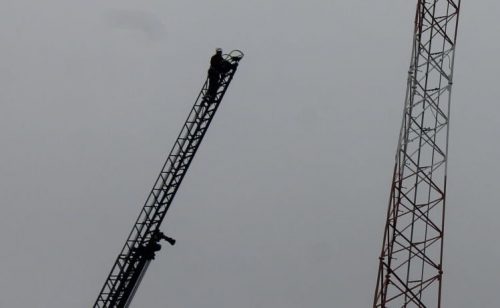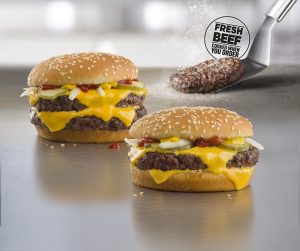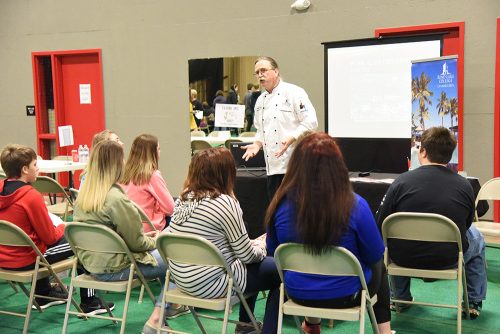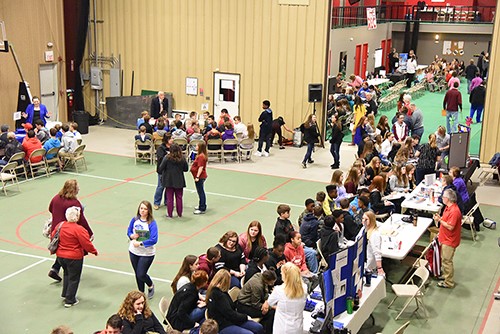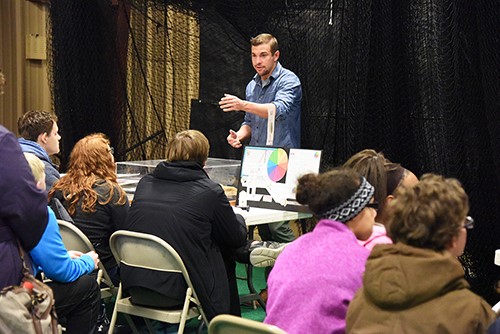Marijuana legalization and lobbyist restrictions also strongly favored
From SIU News Service
CARBONDALE, Ill. — Illinois voters are not very sanguine about the overall direction of the state and nation, but they are much happier about the direction of their own town or city. Voters are also not impressed with the recent federal tax cuts and do not plan to let them influence their voting decisions.
Those findings are major conclusions of a recent poll released today by Southern Illinois University Carbondale’s Paul Simon Public Policy Institute. The poll also included questions regarding which party voters believe best represents their interests in Congress and two policy issues on Illinois’ political agenda – legalizing recreational marijuana if it is taxed and regulated like alcohol, and whether lawmakers should wait at least a year before becoming a registered lobbyist.
Voters believe nation, state are going in wrong direction
The SimonPoll™ shows that 64 percent of Illinois voters believe the nation is “off track and heading in the wrong direction,” with 27 percent saying the right direction and 9 percent indicating they didn’t know.
As for Illinois’ direction, 84 percent believe the state is off track and heading in the wrong direction, while only 9 percent said the right direction.
 “Voters have been more negative about the state of Illinois than the rest of the country since the inception of our poll in 2008,” said Charlie Leonard, an institute visiting professor and one of the designers of the poll. “It is notable that the state ratings are still 20 percentage points more negative than the national ratings and there is an 18 percent gap between Illinois and the nation on the ‘right direction’ option.”
“Voters have been more negative about the state of Illinois than the rest of the country since the inception of our poll in 2008,” said Charlie Leonard, an institute visiting professor and one of the designers of the poll. “It is notable that the state ratings are still 20 percentage points more negative than the national ratings and there is an 18 percent gap between Illinois and the nation on the ‘right direction’ option.”
Meanwhile, voters were more positive about the direction that their city or area is headed. A majority, 54 percent, chose right direction while 37 percent said wrong direction and 10 percent don’t know.
Majority of voters opposed to 2017 tax cuts
Well over a majority (53 percent) of Illinois voters opposed the 2017 tax cut passed by the Republican-controlled Congress and signed by President Trump.
About one-third (34 percent) supported the tax cut and 2 percent said “neither.”
The state is deeply polarized — 80 percent of Democrats opposed and 75 percent of Republicans supported the tax cuts. Among independents, 48 percent opposed and 36 percent supported the tax cuts.
Chicago voters opposed the tax cuts by a 63 to 28 percent margin, while downstate voters were more closely divided – with 40 percent in support and 41 percent opposed. In suburban Chicago and the collar counties, 55 percent opposed the tax cuts and 33 percent supported them.
Tax cuts make it harder for Republican candidates to gain support
On whether the tax cuts will make voters more or less likely to vote for Republican congressional candidates in November’s general election, 56 percent said less likely, 33 percent said more likely, and 6 percent said neither.
Among Democrats, it was 85 percent less likely, while 80 percent of Republicans said more likely.
Among independents, 49 percent said less likely and 29 percent said more likely.
Downstate voters chose more likely over less likely by a 48 to 42 percent margin.
Chicago voters said less likely by a 70 to 19 percent, while suburban Chicago and collar counties voters chose less likely over more likely by 58 to 31 percent.
‘Solid advantage’ for Democrats on who represents voters’ interests
On which party “best represents your interest in the U. S. Congress” there was a solid advantage for the Democrats – 43 percent to 28 percent for Republicans.
The poll found 6 percent chose Libertarians, 2 percent chose the Green Party and 12 percent chose some other party.
Among downstate voters, 40 percent chose Republicans, 31 percent chose Democrats while 7 percent chose Libertarians and 2 percent chose the Green Party.
Chicago favored Democrats 55 to 15 percent over Republicans, while 6 percent chose Libertarians and 3 percent chose the Green Party. In Chicago suburbs and collar counties, there was a 45 to 25 percent edge for Democrats over Republicans, while 5 percent chose Libertarians and 2 percent chose the Green Party.
Voters favor legalizing recreational marijuana; lobbyist restriction
The poll found that 66 percent of Illinois voters favor legalizing recreational marijuana if taxed and regulated like alcohol while 32 percent are opposed. There were 3 percent of voters who were unsure.
Downstate voters favored legalization by a 58 to 40 percent margin. Chicago voters were 77 to 22 percent in favor, and suburban Chicago and collar counties voters favored the proposal 66 to 31 percent.
Democrats favored the proposal 78 to 20 percent; Republicans split at 49 percent apiece, and independents favored it by a 62 percent to 36 percent margin.
An overwhelming 85 percent support a proposal that Illinois should require lawmakers to wait at least a year before registering as a lobbyist. There were 10 percent were opposed and 5 percent unsure.
The proposal was favored by similar margins by identifiers with both parties and independents and all three major regions of the state.
Sample size and margin of error
The margin of error for the entire sample of 1,001 voters is plus or minus 3.1 percentage points. This means that if we conducted the survey 100 times, in 95 of those instances, the population proportion would be within plus or minus the reported margin of error for each subsample.
For subsamples, the margin of error increases as the sample size goes down. The margin of error was not adjusted for design effects. Among self-identified primary election voters, the margin is plus or minus 6 percentage points in the 259-voter sample of Republicans, and 4.5 percentage points in the sample of 472 Democrats.
